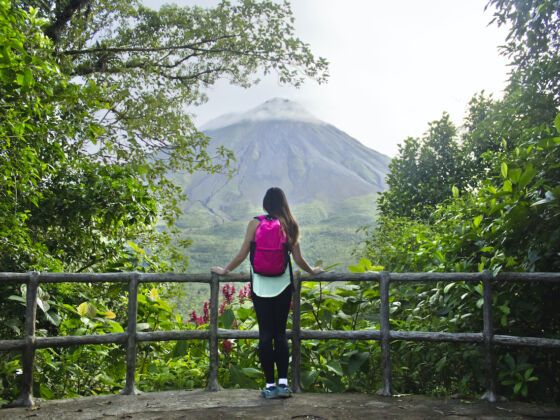It doesn’t take much to convince travelers to visit Costa Rica. The beaches, jungles, cuisine, and pura vida lifestyle sell themselves. Now, a collaborative initiative between the Costa Rica Tourism Institute, National Women’s Institute, and National Commission for Tourism Security is giving female travelers yet another reason to boost Costa Rica to the top of their travel lists: the SOFIA Network, which “seeks to foster equality and safer travel environments.”

A New Initiative Is Making Costa Rica a Top Choice for Female Travelers
Launched on March 22, 2021, the SOFIA Network is the first tourism effort in Costa Rica targeted toward women and solo female travelers. Advancing gender equality and suppressing violence against women as tourism rebounds are chief among the initiative’s goals.
Women’s Condition Minister and National Women’s Institute Executive President Marcela Guerrero shared the following statement: “During pandemic times, when tourism has been impacted, we ask the commitment of every person in the industry and the tourism community, with the objective of guaranteeing equality between women and men in the Costa Rican tourism sector, eradicate violence against national and foreign women, and promote safe environments for tourists, as an axis of responsible, sustainable, and inclusive tourism.”
To meet these objectives, SOFIA Network is appealing to both the public and private sectors by inviting all actors in the tourism industry and local communities in heavily touristed areas to participate in a free and voluntary program. To participate, businesses and individuals can earn a SOFIA Network seal by studying the “Guide to Best Practices for Safety in Tourism Operations.” Businesses are required to prove that at least 80 percent of their staff have taken the course, which is valid for two years before requiring renewal.
According to Costa Rican Minister of Tourism Gustavo J. Segura, involvement in the program will “promote the pleasant permanence of tourists by strengthening the industry’s professional skills” and “build a peaceful, prosperous, and sustainable environment in a world where women are more independent and enjoy traveling alone.”
The push to make female travelers feel more comfortable in Costa Rica is not only socially significant but also statistically sound. According to data gathered by the Costa Rican Tourism Institute, in 2019 an estimated 15.8 percent of non-resident arrivals in Costa Rica were solo female travelers, totaling nearly 400,000 women. If that many female travelers were already fulfilling their dreams of a solo trip to Costa Rica, we can only imagine how those figures will skyrocket once news of the SOFIA Network gets out.